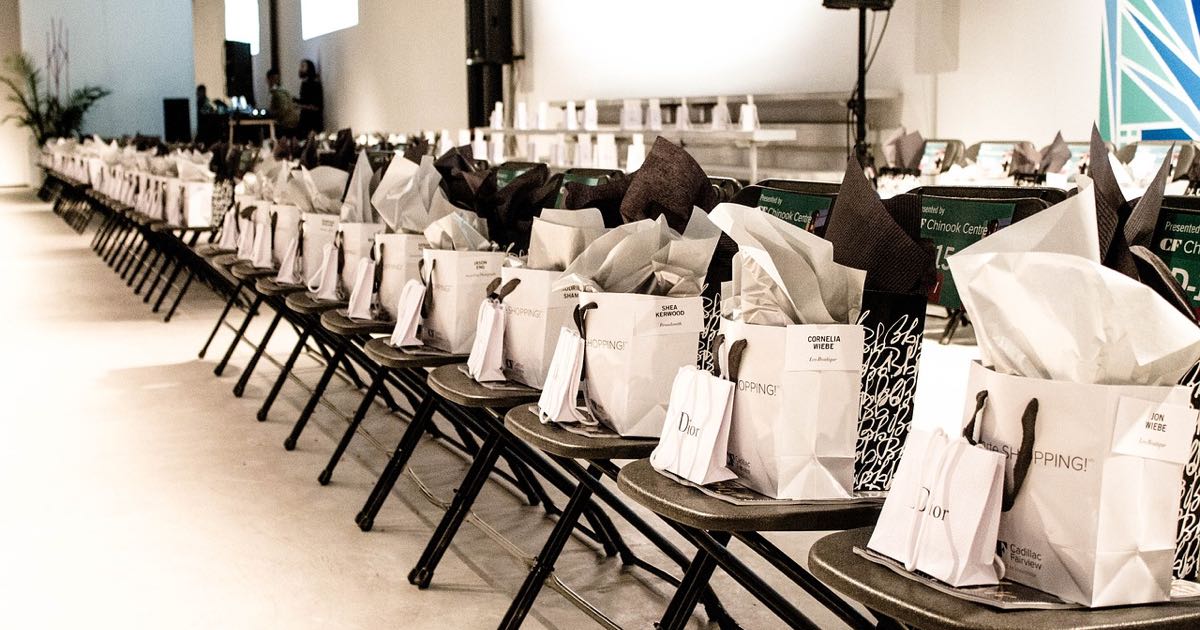 by Sarah Hill on
by Sarah Hill on

According to experienced corporate event planners, the most important aspects of conference planning are:
However, while those aspects are important, you still need a way to get people to your booth or area.
Standing out from the crowd in a conference can be difficult. So, experienced conference organisers know that using conference giveaways to incentivize attendees can be very useful.
But how exactly can conference giveaways help?
Well, there are many reasons why it is a powerful tool if used the right way. Let’s explore some of them below.
A well-executed conference giveaways campaign can draw attention and leave a lasting impression for your audience.
But how exactly can they be beneficial?
Below, we’ll go over some of the most important advantages.
The primary goal of corporate event planners is to drive attendance and increase interest in the company. Corporate giveaways can help you drive traffic to your booth and reach and engagement goals for the conference.
The reason why giveaways work so well in driving traffic to your booth or section is that they are the most powerful incentive.
People love getting free stuff, especially if it’s something relevant and useful to them.
If you have promotional products that draw attention and get people talking, you’ll be well on your way to becoming the centre of attention in the conference.
During trade shows and conferences, one of the main goals for any company is to get their brand remembered in the eyes of the target audience.
Growing your company can be difficult if your brand isn’t recognized in your marketplace. Therefore, you must use conferences as the perfect place to draw attention to your brand and become more visible.
If you can put together an effective conference giveaway campaign, you can draw attention to your company during the event. You can also generate a response on social media, as people start sharing the promotional products that they received.
This way, you can reach an audience much bigger than the one attending the conference itself and propel your company’s growth.
Finally, you can’t underestimate the power of sharing positive experiences with the people that you want to reach.
Even if it’s a relatively simple conference giveaway, you are still offering a gift to your prospects. That will help them remember you in a positive light and might also have a reciprocal effect in the future.
Instead of being a company that the prospect has never heard of, now he will not only be familiar with your brand but will also remember the nice gesture.
He might even keep the gift for a long time if it’s useful and relevant to him.
We’ve gone through the main reasons why conference giveaways are so effective.
So now, let’s explore some of the more effective strategies that experienced conference organizers use in their campaigns.
The first step of putting together a giveaway campaign is determining your target audience.
It won’t matter how expensive or impressive your promotion is if:
the products that you choose aren’t relevant to the people that you want to reach; they don’t make sense for the environment that you are engaging them in.
Take the time to understand who you’re dealing with and think about how you can match the theme and mood of the conference with what your brand can offer.
That way, you can create a cost-effective giveaway campaign that will draw attention to your brand and help your booth or section stand out.
Once you know who you are dealing with, the next step is establishing your goals.
You need to specify what reaction you are trying to entice from your audience and then base your decisions on making that happen.
Companies often like to dream big with their giveaways, but that’s not always the right approach. Sure, it would be nice to give away something that the prospect will use for months or even years. But that’s not very realistic if you’re operating on a limited budget.
However, that doesn’t mean that you can’t leave a lasting impression.
The main goals of a giveaway campaign are:
Even if the giveaway gets thrown out in a few days, that doesn’t necessarily mean that the campaign is a failure. After all, you already made an impression by getting the prospect to take it.
Once you know who you want to reach and have established your goals, it’s time to figure out the exact product that you’re going to give away.
We already discussed the importance of choosing something that:
But another crucial aspect is ensuring that the product is of high quality.
Obviously, the biggest issue when thinking of products is the budget. You don’t want to overspend on a free giveaway, as it’s tough to measure the effectiveness of the campaign.
However, you still need to ensure that the products you use in the campaign are reliable and do not break easily. Otherwise, it could form negative associations with your brand, even if the giveaway didn’t directly relate to what you can offer.
It’s always a better idea to go with a smaller and simpler product that you know is of high quality. If you become over-ambitious, you may leave a bigger initial impression but end up disappointing your prospect later on.
Author Bio
Sarah Hill is a content writer at Seven Events Ltd – an event company
offering event production, meeting planning, team building, incentive
travel and venue finder in
Birmingham. She
started her career in the events industry almost a decade ago; as time
progressed she became an avid event blogger sharing her insight on
corporate event planning.
published by Sarah Hill